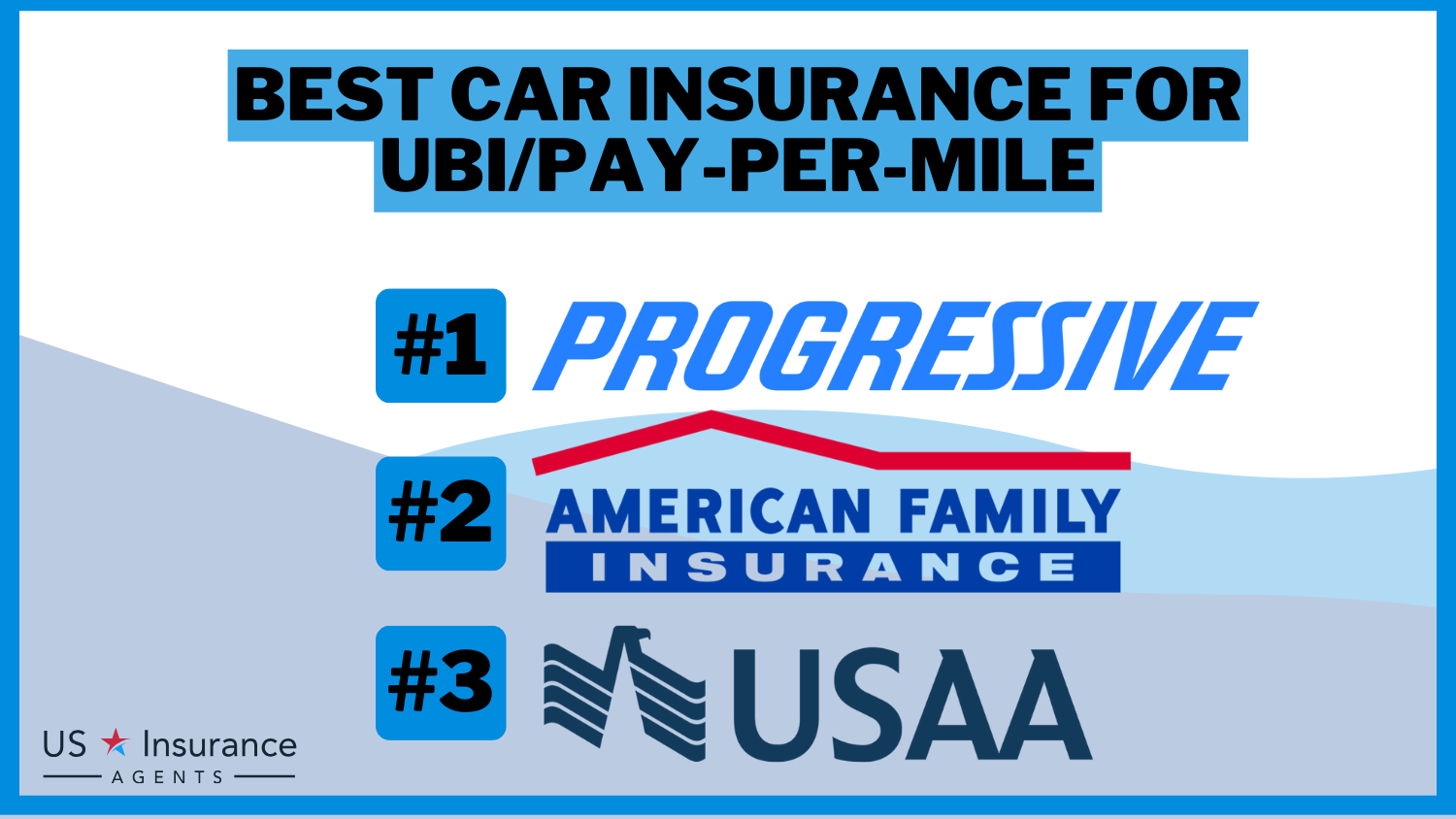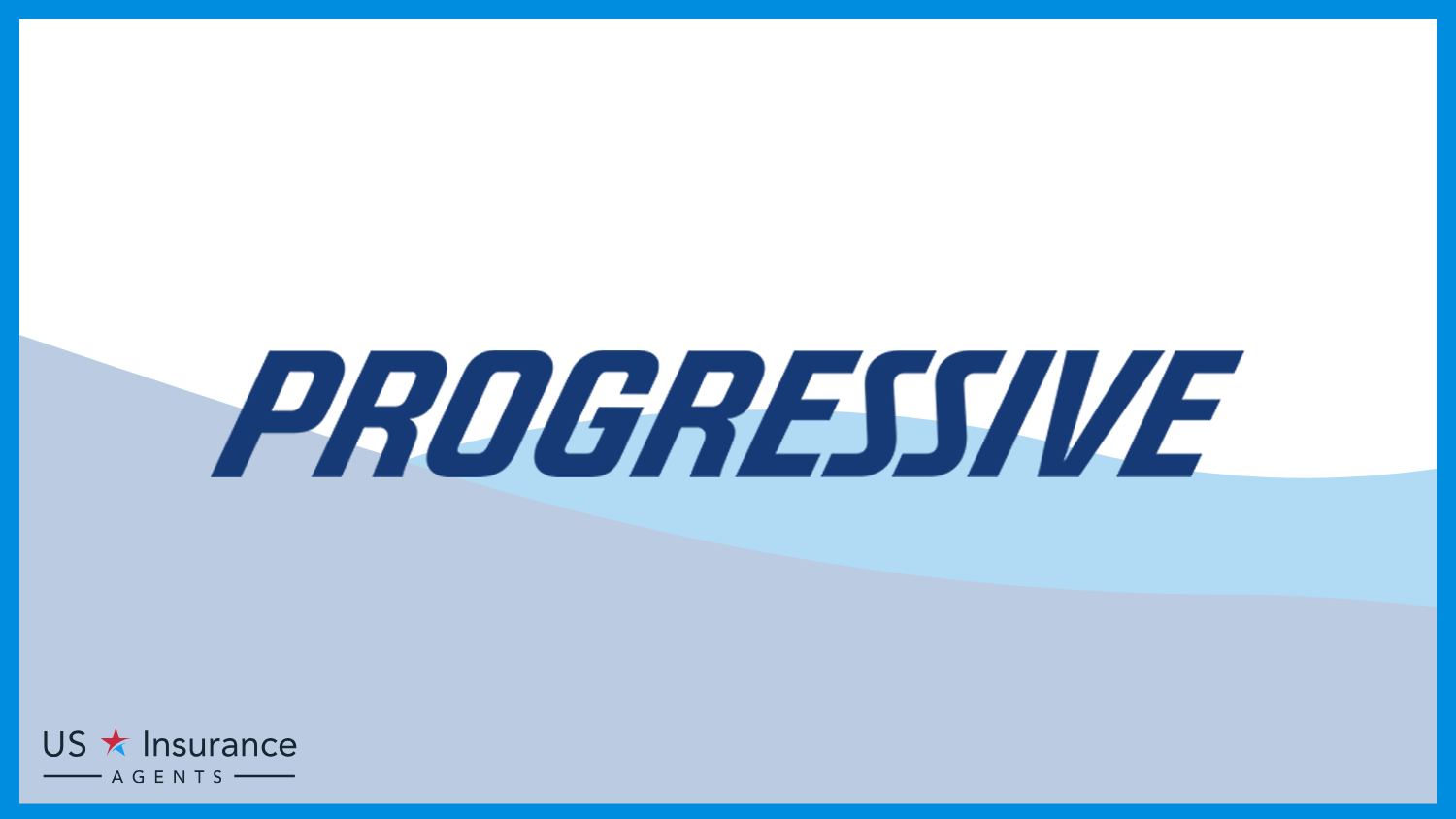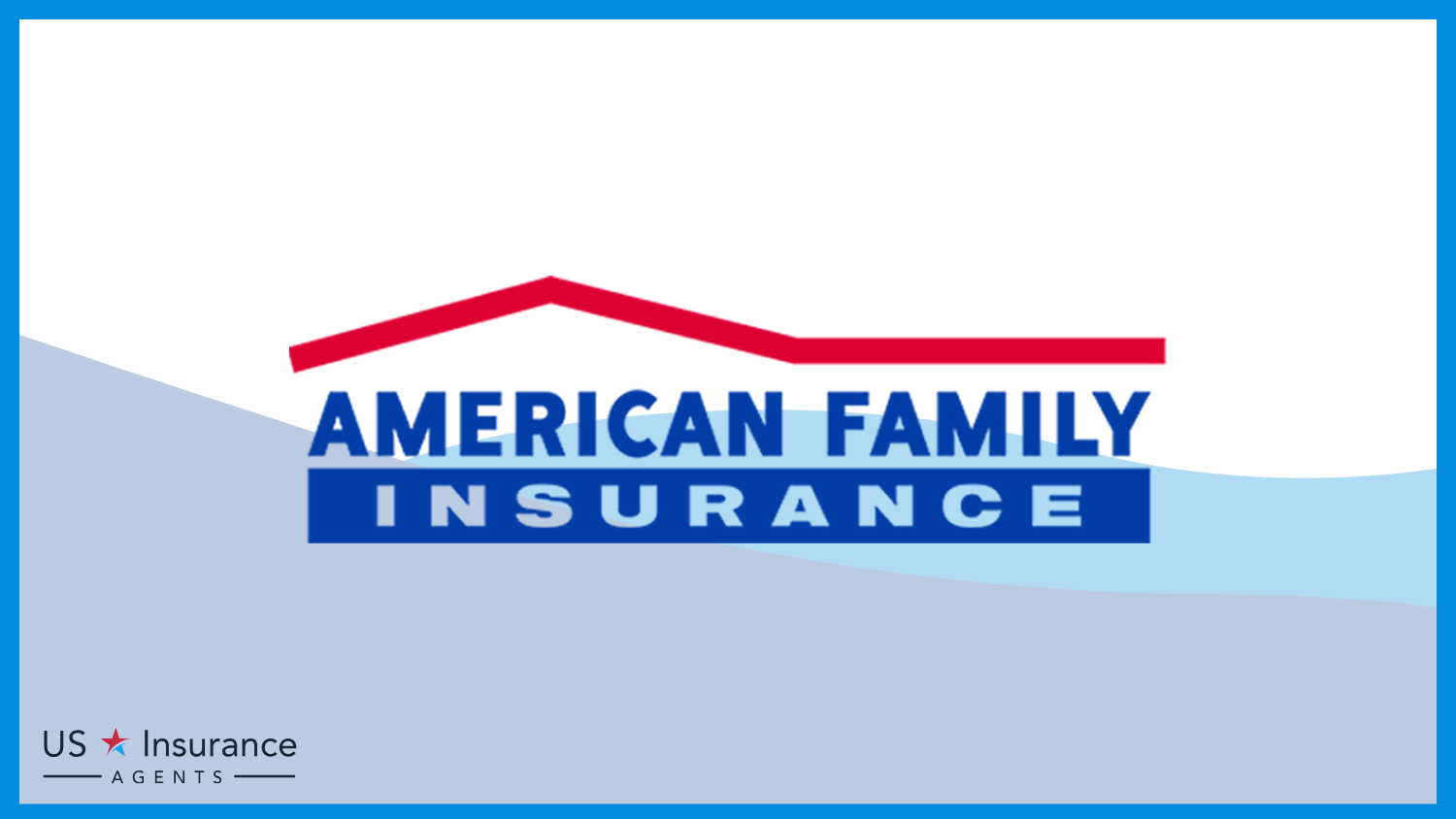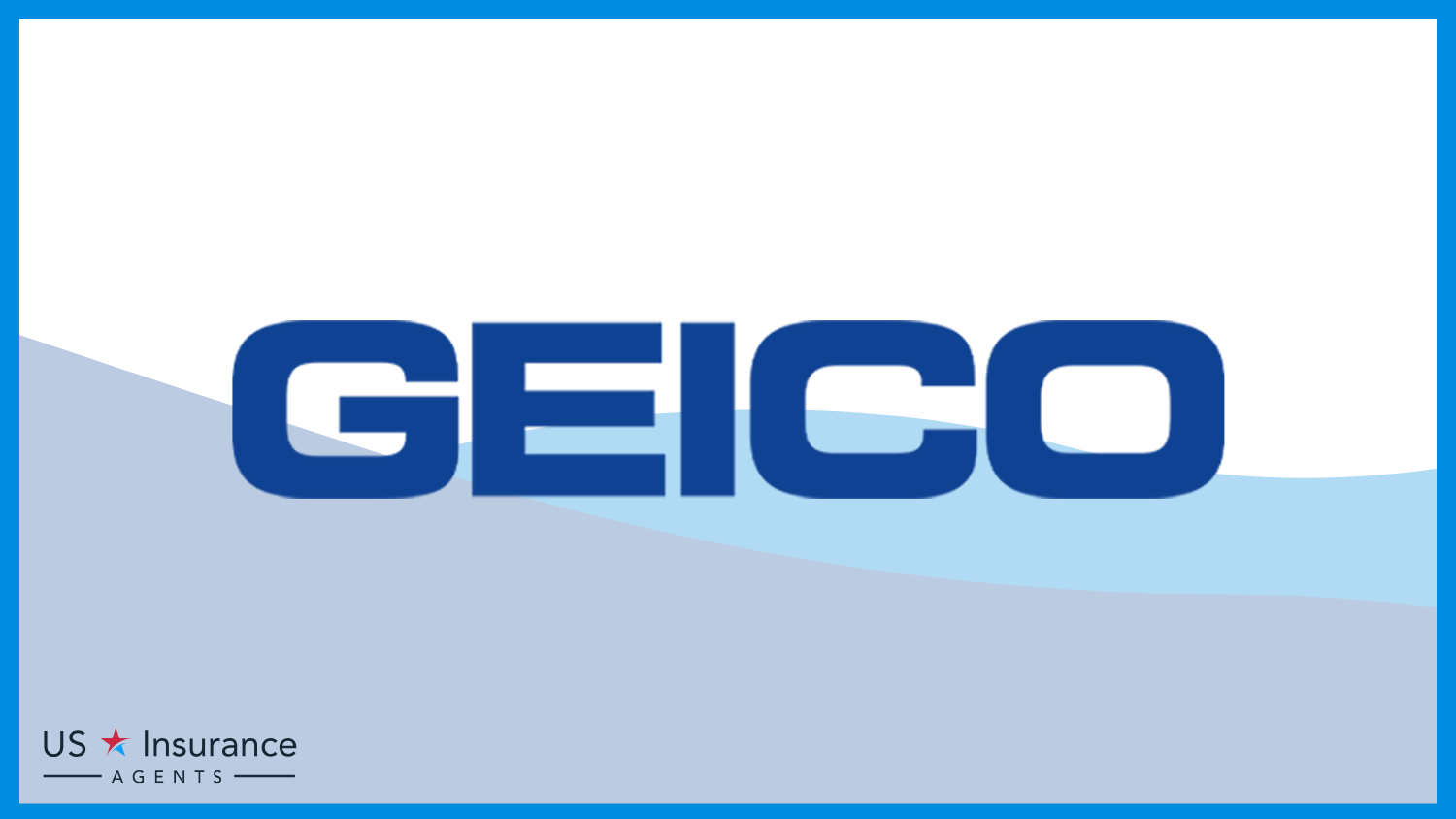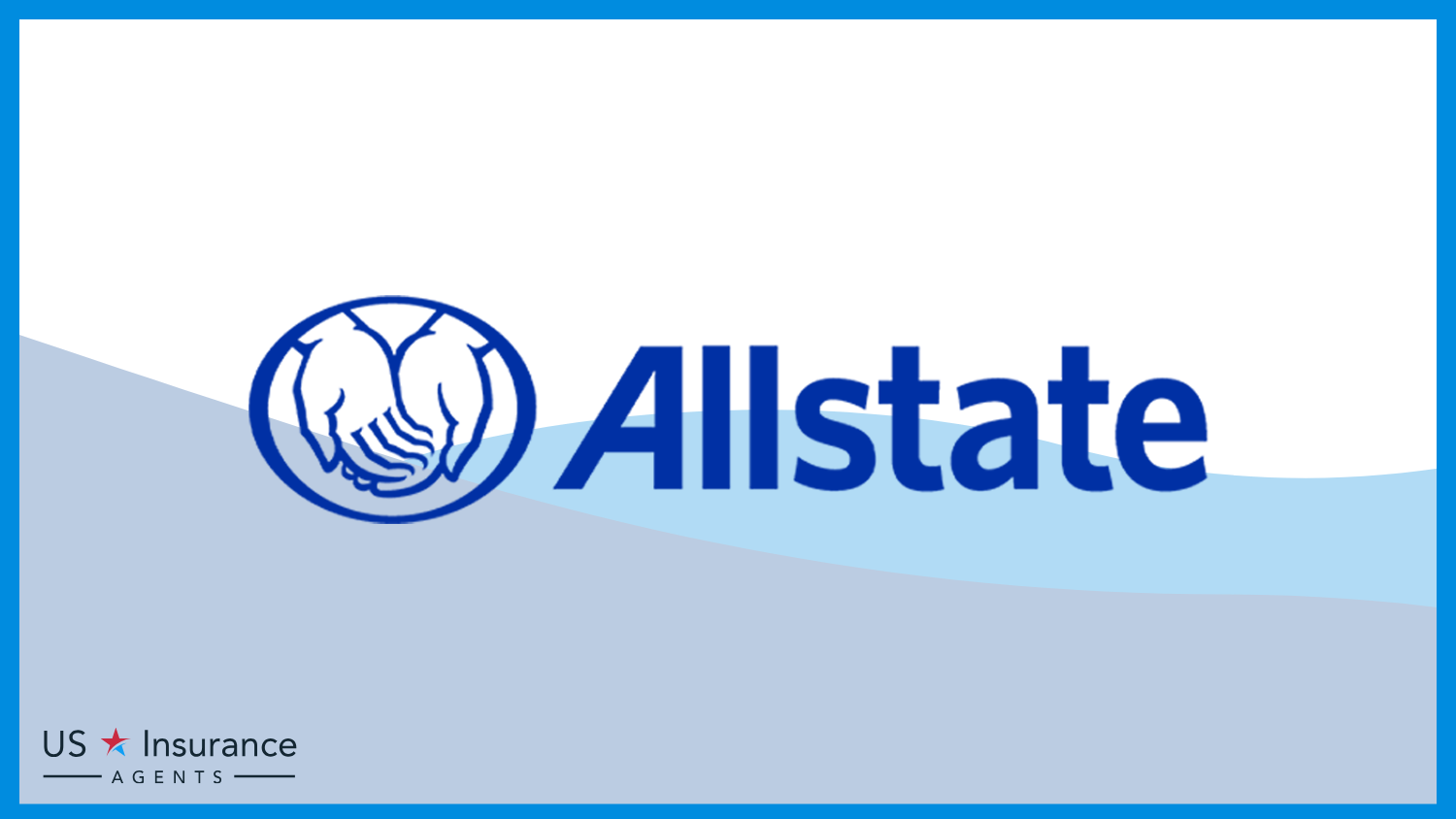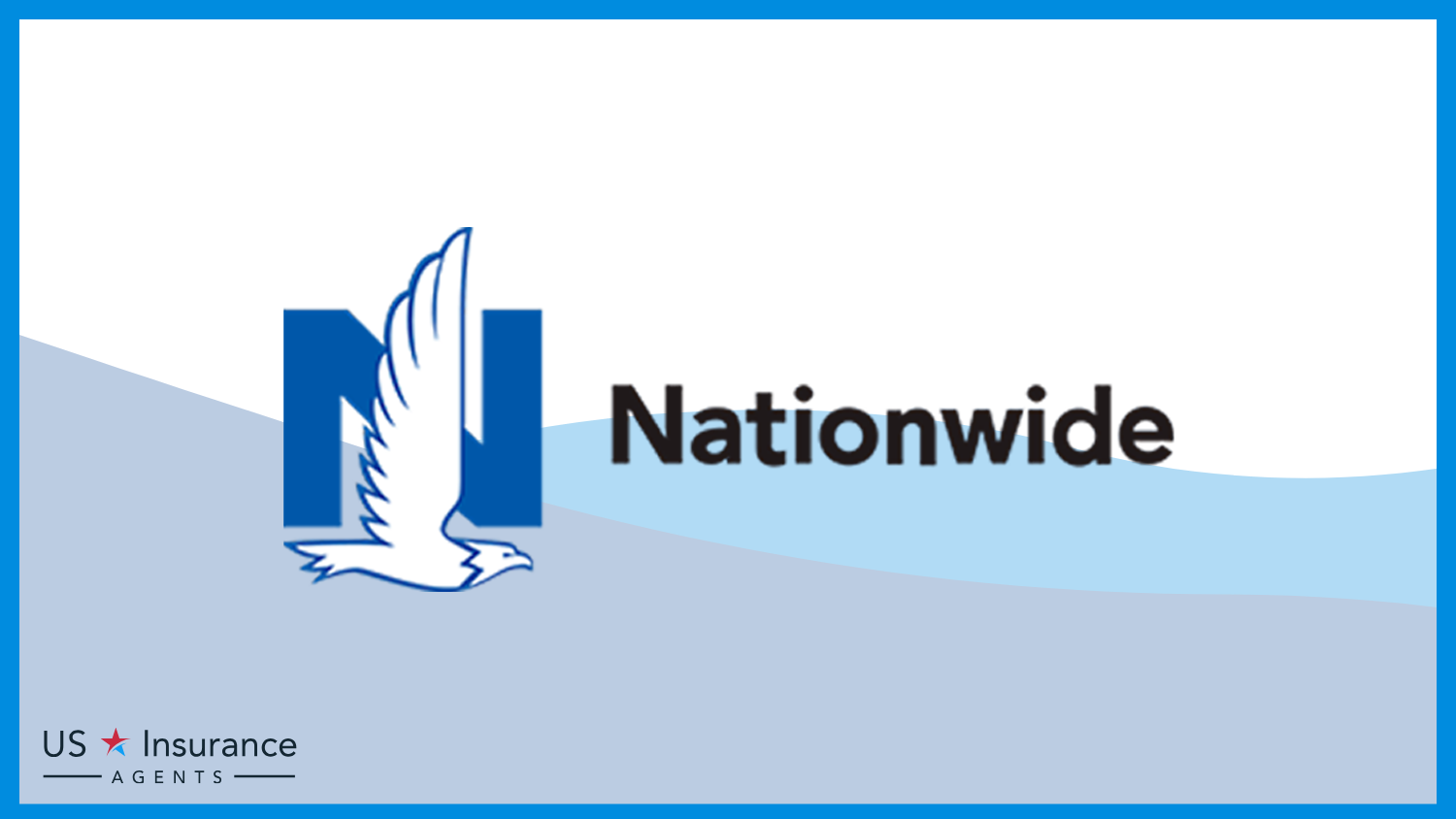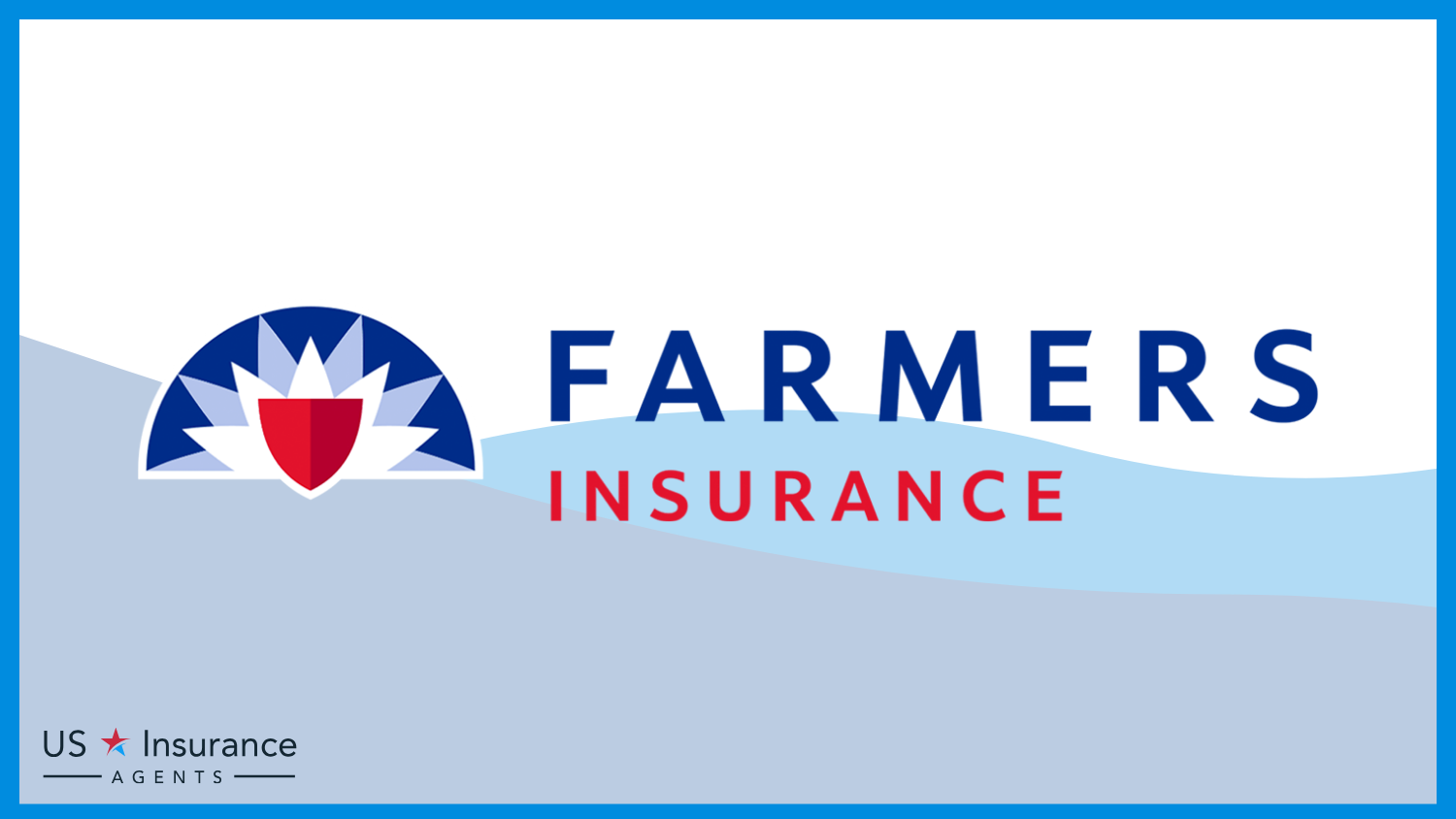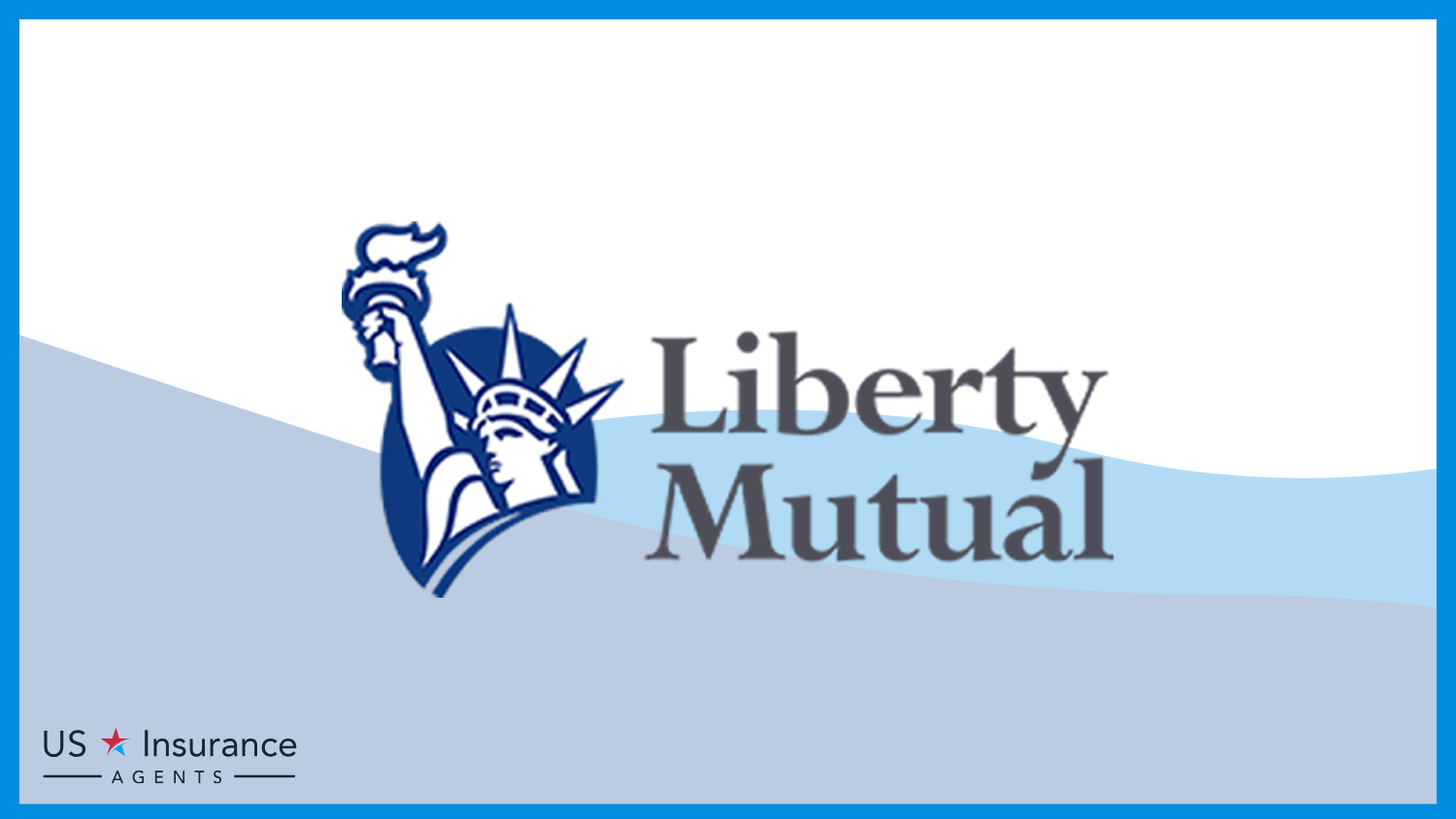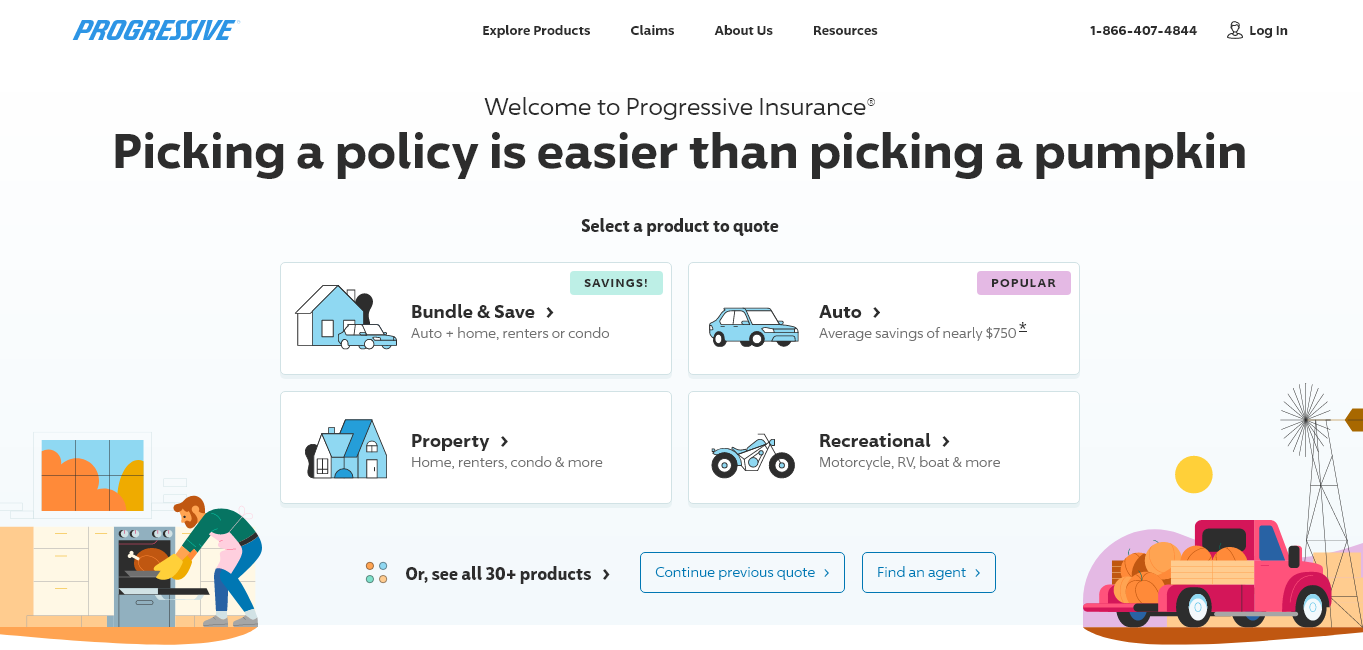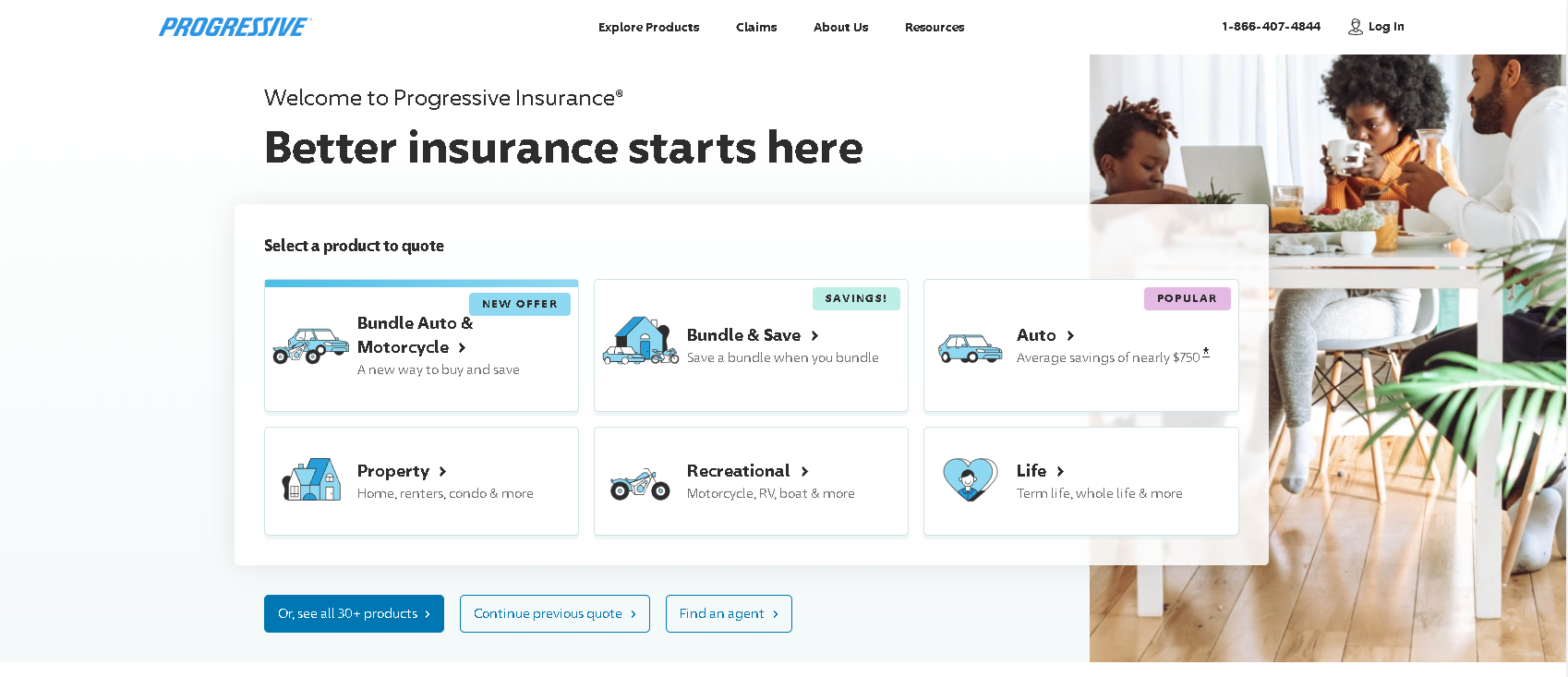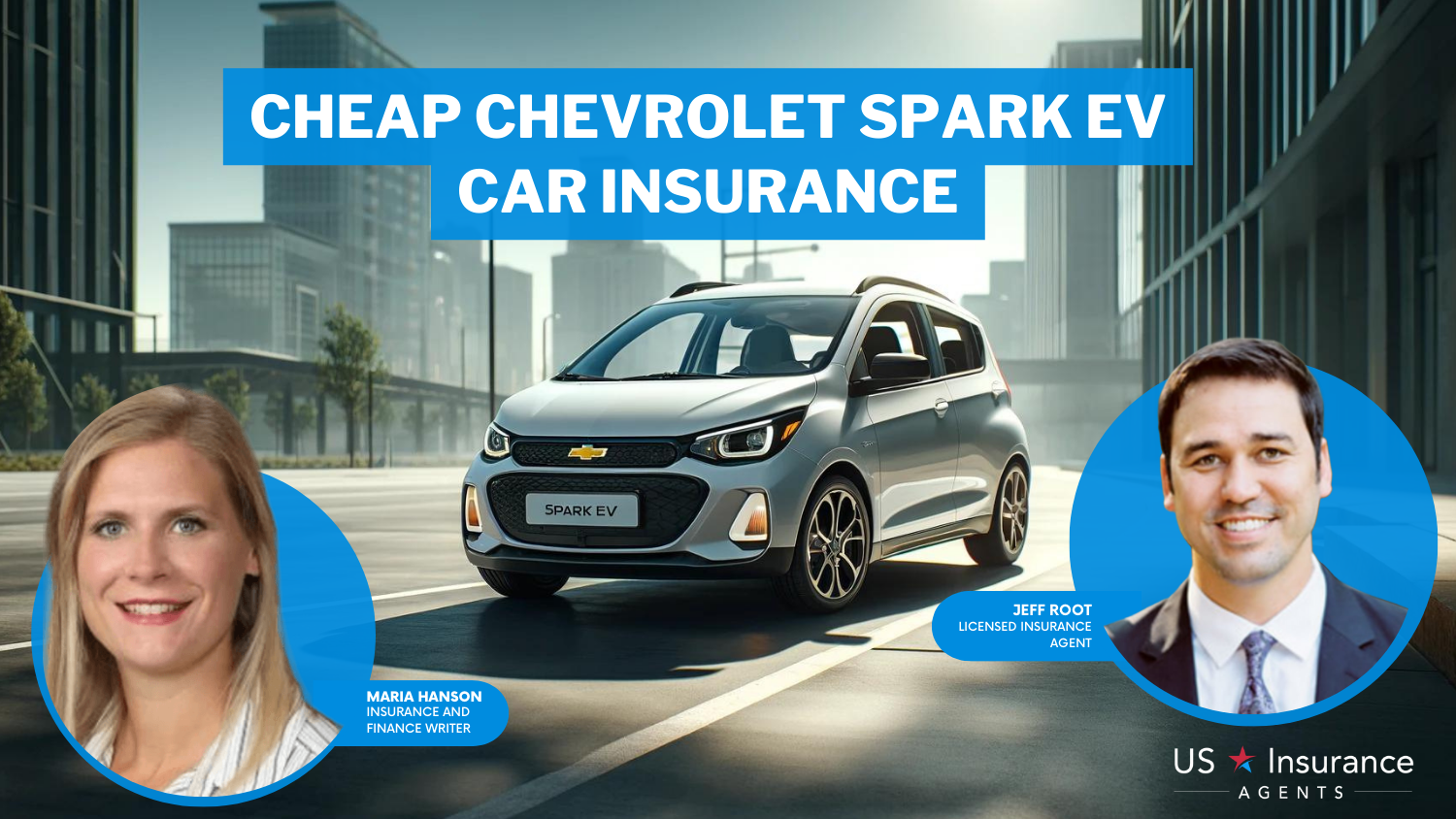Best Car Insurance for UBI/Pay-Per-Mile in 2026 (Find the Top 10 Companies Here!)
Progressive, American Family, and USAA are the leading choices for the best car insurance for UBI/pay-per-mile, offering rates as low as $42 monthly. They excel by combining highly competitive rates with comprehensive UBI/pay-per-mile features tailored to diverse driving needs.
Read more Secured with SHA-256 Encryption





Table of Contents
Table of Contents


Licensed Insurance Producer
Dani Best has been a licensed insurance producer for nearly 10 years. Dani began her insurance career in a sales role with State Farm in 2014. During her time in sales, she graduated with her Bachelors in Psychology from Capella University and is currently earning her Masters in Marriage and Family Therapy. Since 2014, Dani has held and maintains licenses in Life, Disability, Property, and Casualt...
Dani Best


Sr. Director of Content
Sara Routhier, Senior Director of Content, has professional experience as an educator, SEO specialist, and content marketer. She has over 10 years of experience in the insurance industry. As a researcher, data nerd, writer, and editor, she strives to curate educational, enlightening articles that provide you with the must-know facts and best-kept secrets within the overwhelming world of insurance....
Sara Routhier


Licensed Insurance Agent
Jimmy McMillan is an entrepreneur and the founder of HeartLifeInsurance.com, an independent life insurance brokerage. His company specializes in life insurance for people with heart problems. He knows personally how difficult it is to secure health and life insurance after a heart attack. Jimmy is a licensed insurance agent from coast to coast who has been featured on ValientCEO and the podcast...
Jimmy McMillan
Updated January 2025
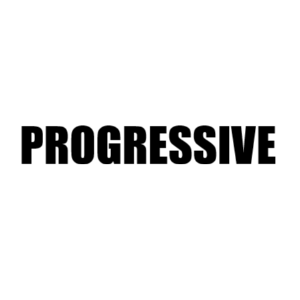 13,285 reviews
13,285 reviewsCompany Facts
Full Coverage for UBI/Pay-Per-Mile
A.M. Best Rating
Complaint Level
Pros & Cons
 13,285 reviews
13,285 reviews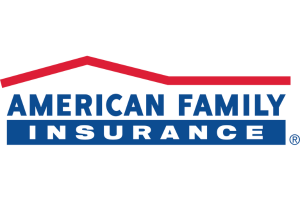 2,235 reviews
2,235 reviewsCompany Facts
Full Coverage for UBI/Pay-Per-Mile
A.M. Best
Complaint Level
Pros & Cons
 2,235 reviews
2,235 reviews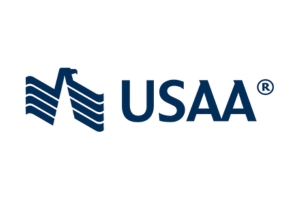 6,590 reviews
6,590 reviewsCompany Facts
Full Coverage for UBI/Pay-Per-Mile
A.M. Best
Complaint Level
Pros & Cons
 6,590 reviews
6,590 reviewsThe best car insurance for UBI/pay-per-mile are Progressive, American Family, and USAA, each known for their unique offerings tailored to how you drive.
Progressive shines with user-friendly platforms and customizable policies, while American Family appeals with affordability and adaptable coverage options.
Our Top 10 Company Picks: Best Car Insurance for UBI/Pay-Per-Mile
| Company | Rank | Multi-Policy Discount | Low-Mileage Discount | Best For | Jump to Pros/Cons |
|---|---|---|---|---|---|
| #1 | 15% | 10% | Online Convenience | Progressive | |
| #2 | 29% | 15% | Student Savings | American Family | |
| #3 | 10% | 8% | Military Savings | USAA | |
| #4 | 25% | 12% | Cheap Rates | Geico | |
| #5 | 25% | 20% | Add-on Coverages | Allstate | |
 | #6 | 20% | 40% | Usage Discount | Nationwide |
| #7 | 10% | 8% | Local Agents | Farmers | |
 | #8 | 25% | 15% | Customizable Polices | Liberty Mutual |
| #9 | 12% | 10% | Accident Forgiveness | Travelers | |
 | #10 | 5% | 5% | Deductible Reduction | The Hartford |
USAA stands out by offering substantial discounts for military members. Together, these providers redefine auto insurance by focusing on individual driving habits to determine premiums, making them top choices for those seeking personalized and flexible insurance policies.
Our free online comparison tool above allows you to compare cheap car insurance quotes instantly — just enter your ZIP code to get started.
- Progressive leads with top-tier UBI/pay-per-mile policies and customization
- UBI/pay-per-mile insurance adjusts rates based on actual driving habits
- Such policies can offer cost savings for low-mileage and safe drivers
#1 – Progressive: Top Overall Pick
Pros
- Digital Tools: Progressive offers a robust online platform for managing policies easily.
- Multi-Policy Discount: Up to 15% off when bundling various insurance types.
- Low-Mileage Discount: Offers up to 10% off for drivers with lower mileage. Learn more in our Progressive insurance review & ratings.
Cons
- Limited Highest Discounts: Maximum discounts are lower compared to some competitors.
- Rate Fluctuations: Online quotes may vary significantly from final policy prices.
Free Auto Insurance Comparison
Compare Quotes From Top Companies and Save
Secured with SHA-256 Encryption
#2 – American Family: Best for Student Savings
Pros
- High Multi-Policy Discount: Offers up to 29% for combining multiple policies. See more details on our American Family insurance review & ratings.
- Substantial Low-Mileage Discount: Provides up to 15% off for fewer driven miles.
- Student-Focused Discounts: Tailored discounts especially beneficial for younger drivers.
Cons
- Availability Issues: Not available in all states, limiting accessibility for some.
- Higher Base Rates: Despite discounts, base premiums can be relatively high.
#3 – USAA: Best for Military Savings
Pros
- Tailored for Military: Specialized discounts and services for military members.
- Bundling Options: Up to 10% off for combining insurance policies. More information is available about this provider in our USAA insurance review & ratings.
- Competitive Low-Mileage Discount: Offers up to 8% discount for low mileage.
Cons
- Eligibility Restrictions: Services restricted to military members and their families.
- Limited Discount Percentage: Lower multi-policy and mileage discounts compared to others.
#4 – Geico: Best for Cheap Rates
Pros
- Affordable Premiums: Known for lower insurance rates across various coverages.
- Generous Multi-Policy Discount: Offers up to 25% discount on policy bundling.
- Significant Low-Mileage Discount: Up to 12% off for less frequent drivers. Read up on do Geico employees get car insurance discount for more information.
Cons
- Basic Coverage Options: More basic options compared to competitors’ offerings.
- Customer Service Variability: Service quality may vary by location and agent.
Free Auto Insurance Comparison
Compare Quotes From Top Companies and Save
Secured with SHA-256 Encryption
#5 – Allstate: Best for Add-on Coverages
Pros
- Extensive Add-on Options: Wide range of coverage enhancements available.
- High Multi-Policy and Low-Mileage Discounts: Up to 25% and 20% respectively.
- Customizable Policies: Policies can be tailored to individual needs. Check out insurance savings in our complete Allstate insurance review & ratings.
Cons
- Higher Cost: Premiums can be higher before applying discounts.
- Complex Policy Options: Some customers may find the array of choices overwhelming.
#6 – Nationwide: Best for Usage Discount
Pros
- Exceptional Usage Discounts: Offers up to 40% off for low mileage. Discover more about offerings in our Nationwide insurance review & ratings.
- Significant Multi-Policy Discount: Up to 20% off for bundling policies.
- Flexible Policy Features: Adaptable options that cater to diverse needs.
Cons
- Inconsistent Discount Availability: Discounts not available in all states.
- Rate Adjustments: Rates may increase at renewal based on usage data.
#7 – Farmers: Best for Local Agent
Pros
- Strong Agent Support: Extensive local agent network for personalized service.
- Multi-Policy Discount: Offers up to 10% off for bundling policies. Access comprehensive insights into our Farmers insurance review & ratings.
- Modest Low-Mileage Discount: Provides up to 8% discount for driving less.
Cons
- Higher Rates for Some: Can be more expensive than other insurers for some policies.
- Variable Agent Quality: Experience and service can vary significantly between agents.
Free Auto Insurance Comparison
Compare Quotes From Top Companies and Save
Secured with SHA-256 Encryption
#8 – Liberty Mutual: Best for Customizable Policies
Pros
- High Customization: Offers highly customizable policy options. Delve into our evaluation of Liberty Mutual insurance review & ratings.
- Competitive Multi-Policy Discount: Up to 25% off when bundling different insurances.
- Substantial Low-Mileage Discount: Up to 15% off for low-mileage drivers.
Cons
- Premium Pricing: Generally higher rates compared to some major competitors.
- Complexity in Choices: Variety of options can be confusing for some customers.
#9 – Travelers: Best for Accident Forgiveness
Pros
- Accident Forgiveness: Policies include options for not raising rates post-accident.
- Solid Discounts: Offers up to 12% off for multi-policy and 10% for low mileage.
- Reliable Coverage Options: Known for comprehensive and reliable coverage. Unlock details in our Travelers insurance review & ratings.
Cons
- Higher Premiums Without Discounts: Base rates can be higher without discounts.
- Limited Global Reach: More focused in the U.S., with less presence internationally.
#10 – The Hartford: Best for Deductible Reduction
Pros
- Deductible Reduction Benefits: Offers benefits for reducing deductibles over time.
- Tailored to Older Drivers: Excellent options for senior drivers with AARP endorsement.
- Stable Rate Offerings: Competitive and stable pricing for various coverages. Discover insights in our The Hartford insurance review & ratings.
Cons
- Lower Discounts: Lower discounts compared to other top insurers.
- Niche Market Focus: Primarily focuses on the senior market, which might limit options for younger drivers.
Free Auto Insurance Comparison
Compare Quotes From Top Companies and Save
Secured with SHA-256 Encryption
Exploring Coverage Rates: Unveiling Monthly Premiums for UBI/Pay-Per-Mile Car Insurance
In the quest for the ideal car insurance tailored to Usage-Based Insurance (UBI) and pay-per-mile preferences, it is imperative to scrutinize coverage rates from reputable providers. The following compilation unveils the average monthly rates for both minimum and full coverage offered by top-notch insurance companies in this niche.
Car Insurance for UBI/Pay-Per-Mile: Monthly Rates by Coverage Level & Provider
| Insurance Company | Minimum Coverage | Full Coverage |
|---|---|---|
| Allstate | $55 | $190 |
| American Family | $52 | $147 |
| Farmers | $50 | $180 |
| Geico | $44 | $93 |
| Liberty Mutual | $42 | $215 |
| Nationwide | $58 | $150 |
| Progressive | $46 | $146 |
| The Hartford | $49 | $94 |
| Travelers | $47 | $116 |
| USAA | $42 | $85 |
Progressive emerges with competitive rates at $46 for minimum coverage and $146 for full coverage, while American Family closely follows with $52 and $147, respectively. USAA stands out with affordability, presenting rates of $42 for minimum coverage and an impressively low $85 for full coverage.
Geico, Allstate, Nationwide, Farmers, Liberty Mutual, Travelers, and Hartford round out the selection, each showcasing distinctive offerings in this innovative insurance landscape. Learn more in our “What is included in comprehensive car insurance?”
These figures serve as a valuable reference for those navigating the dynamic realm of UBI and pay-per-mile insurance, emphasizing the importance of meticulous consideration in selecting coverage that aligns with individual driving habits and preferences. Keep in mind that these rates are averages and actual premiums may vary based on personal factors.
Understanding UBI (Usage-Based Insurance) and Pay-Per-Mile Insurance
Usage-Based Insurance (UBI) and pay-per-mile insurance are two innovative forms of car insurance that have gained widespread popularity in recent years. UBI utilizes telematics technology to monitor your driving habits, such as distance traveled, speed, braking patterns, and even the time of day you drive.
By using this data, insurance companies can calculate your premiums based on your actual driving behavior, rather than relying solely on traditional risk factors such as age, gender, and marital status. On the other hand, pay-per-mile insurance focuses primarily on the number of miles you drive.
With this type of policy, you are charged a base rate, similar to traditional insurance, but your premiums are adjusted based on the number of miles you drive. This pay-as-you-drive approach provides a fair and transparent pricing structure, as you pay only for the miles you actually use.
When choosing between UBI and pay-per-mile insurance, it’s essential to consider your driving habits and insurance needs. If you drive less frequently or primarily use public transportation, a pay-per-mile policy might be the most cost-effective option for you.
On the other hand, UBI policies may suit those who keep irregular driving hours or want to benefit from potential discounts for safe driving. Ultimately, the choice between UBI and pay-per-mile insurance depends on your individual circumstances and preferences.
It’s worth noting that both UBI and pay-per-mile insurance policies typically require the installation of a telematics device in your vehicle. This device collects and transmits data about your driving habits to the insurance company.
While this may raise concerns about privacy, it’s important to understand that the data collected is used solely for insurance purposes and is subject to strict privacy regulations. Additionally, many insurance companies offer incentives and discounts (read our “Lesser Known Car Insurance Discounts” for more information) for safe driving behaviors, which can help offset the cost of these policies.
Factors to Consider When Choosing Car Insurance for UBI/Pay-Per-Mile
When exploring car insurance options for UBI/pay-per-mile, there are several crucial factors to keep in mind. Firstly, it’s essential to understand the extent to which your driving behavior will be monitored.
Some UBI policies collect more detailed information than others, such as analyzing data related to harsh acceleration or sharp cornering. If you have concerns about privacy or being constantly monitored, it’s important to choose a policy that respects your comfort level and is transparent about the data collected.
Secondly, consider the potential discounts and rewards offered through UBI and pay-per-mile policies. Many insurance companies provide significant discounts for safe driving habits, incentivizing you to drive responsibly.
These discounts can contribute to substantial savings on your premiums, making UBI and pay-per-mile options particularly attractive for conscientious drivers. It’s important to carefully review the terms and conditions of these policies to determine the potential savings and rewards you can enjoy.
Additionally, it’s crucial to assess the coverage provided and any limitations of UBI and pay-per-mile policies. While these options can often provide cost savings, it’s essential to ensure that the coverage is comprehensive enough to meet your specific needs.
Evaluate the policy’s coverage for bodily injury, property damage, collision, comprehensive, and uninsured/underinsured motorist, among other essential categories, to ensure you have sufficient protection.
Finally, consider the flexibility and ease of use of UBI and pay-per-mile policies. Opt for insurance companies that offer user-friendly mobile apps or online portals to monitor your driving behavior, access policy information, and manage your account conveniently. A seamless and intuitive user interface can enhance your experience and make it easier to track your driving habits and potential savings.
Laura Walker Former Licensed Agent
Moreover, it’s important to research and compare the pricing structure of different UBI/pay-per-mile policies. While these options can offer potential savings, it’s crucial to understand how the pricing is determined. Some policies may charge a base rate in addition to a per-mile rate, while others may have different pricing tiers based on driving behavior.
Take the time to analyze the pricing models and calculate the potential costs based on your estimated mileage to ensure you are getting the best value for your money. See more details on how does the insurance company determines my premium.
Free Auto Insurance Comparison
Compare Quotes From Top Companies and Save
Secured with SHA-256 Encryption
Case Studies: Best Car Insurance for UBI/Pay-Per-Mile
Choosing the right car insurance can be a pivotal decision, especially when considering Usage-Based Insurance (UBI) and pay-per-mile options. The following case studies illustrate how Progressive, American Family, and USAA tailor their services to meet individual needs effectively.
- Case Study #1 – Embracing Online Convenience With Progressive: John, a tech-savvy entrepreneur, prefers handling all his affairs online to maximize efficiency. He chose Progressive for his car insurance because of their renowned online tools and platforms, which allow him to manage his policy entirely from his smartphone.
- Case Study #2 – Maximizing Student Savings With American Family: Sarah, a college student in a bustling university town, drives her car only on weekends and uses public transport on weekdays. She found that American Family offers the best rates with significant discounts for her low-mileage habits and additional savings for being a student.
- Case Study #3 – Utilizing Military Discounts With USAA: Mark, an active-duty military member, was looking for an insurance provider that acknowledges and rewards his service. He chose USAA, which offers specific benefits and discounts for military personnel.
These scenarios demonstrate the potential benefits of selecting an insurance provider that aligns closely with personal driving habits and lifestyle requirements. Whether it’s leveraging online tools, maximizing student discounts, or utilizing benefits for military service, the right insurance company can significantly enhance your insurance experience and cost savings. Unlock details in our “Insurance Quotes Online.”
Finding affordable car insurance doesn’t have to be a challenge. Enter your ZIP code below into our free comparison tool to find the lowest prices in your area.
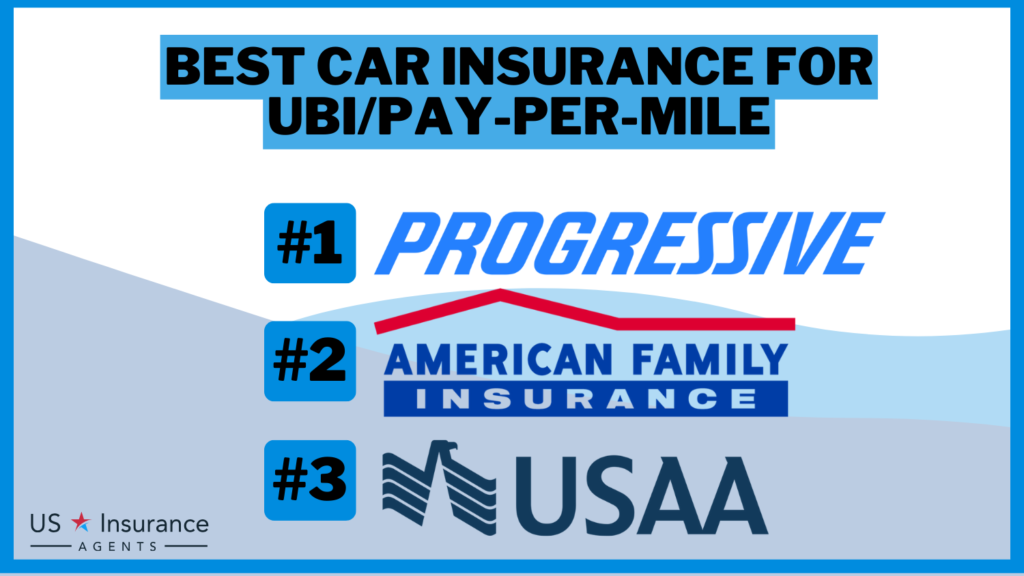
Frequently Asked Questions
What is Usage-Based Insurance (UBI) and pay-per-mile insurance?
Usage-Based Insurance (UBI) and pay-per-mile insurance are innovative car insurance options. UBI utilizes telematics technology to monitor driving habits, while Ppay-per-mile charges a base rate with premiums adjusted based on the number of miles driven. These policies use actual driving behavior data, providing a more personalized and potentially cost-effective approach.
For additional details, explore our comprehensive resource titled “Low Mileage Car Insurance Discount.”
How do Progressive, American Family, and USAA stand out in the UBI/pay-per-mile insurance landscape?
Progressive is known for its user-friendly online platform and competitive rates. American Family offers good student discounts and customizable policies, while USAA stands out with exclusive discounts for military members. Each company caters to specific needs, providing unique advantages in the UBI and pay-per-mile insurance space.
What factors should be considered when choosing UBI or pay-per-mile insurance?
When selecting UBI or pay-per-mile insurance, consider the extent of monitoring, potential discounts for safe driving habits, coverage provided, and the ease of use. Privacy concerns, pricing structure, and the flexibility of policies should also be evaluated. It’s crucial to choose a policy that aligns with your driving habits and preferences.
What are some potential drawbacks of UBI and pay-per-mile insurance?
Drawbacks may include privacy concerns related to data collection, potential pricing variability based on individual factors, and limitations in coverage options. Some policies may also have geographic restrictions or eligibility criteria. It’s essential to carefully review the terms and conditions to understand any potential drawbacks before choosing these insurance options.
How can users maximize savings with UBI and pay-per-mile insurance?
Users can maximize savings by driving responsibly to qualify for discounts, carefully reviewing and comparing pricing structures, and choosing policies that align with their driving habits. Additionally, exploring additional discounts offered by insurance providers and taking advantage of online tools for policy management can contribute to overall cost savings.
To find out more, explore our guide titled “Best Safe Driver Car Insurance Discounts.”
What is the best pay per mile car insurance?
The best pay per mile car insurance offers flexible rates based on the actual miles you drive, with Progressive often rated highly for its user-friendly service and competitive pricing.
Which provider offers the best per mile car insurance?
American Family is renowned for providing the best per mile car insurance, giving substantial discounts for low-mileage drivers and excellent student savings.
How does a pay-per-mile car insurance comparison help in choosing the right provider?
A pay-per-mile car insurance comparison allows you to evaluate different insurers side by side, focusing on rates, discounts for low mileage, and additional features to find the best fit for your driving habits.
What should I consider when looking into per mile car insurance?
When considering per mile car insurance, evaluate the base fee and per-mile rate, the ease of data tracking, and how well the policy accommodates your typical vehicle usage.
To find out more, explore our guide titled “Compare Car Insurance Quotes.”
How do personalized insurance rates with UBI work?
Personalized insurance rates with UBI (Usage-Based Insurance) adjust your premiums based on your driving behavior, including factors like speed, time of driving, and braking habits, making it a fairer assessment of risk.
What is the best usage-based insurance available?
How does usage-based car insurance work?
Is usage-based insurance the same as pay-per-mile?
What should I know about UBI car insurance before signing up?
How do UBI and pay (ubipay) insurance models benefit drivers?
What is the best mileage for car insurance?
What is a low-mileage driver?
How to calculate mileage for a car?
What happens if you go over your mileage on finance?
How much does it cost to top up mileage?
Get a FREE Quote in Minutes
Insurance rates change constantly — we help you stay ahead by making it easy to compare top options and save.
